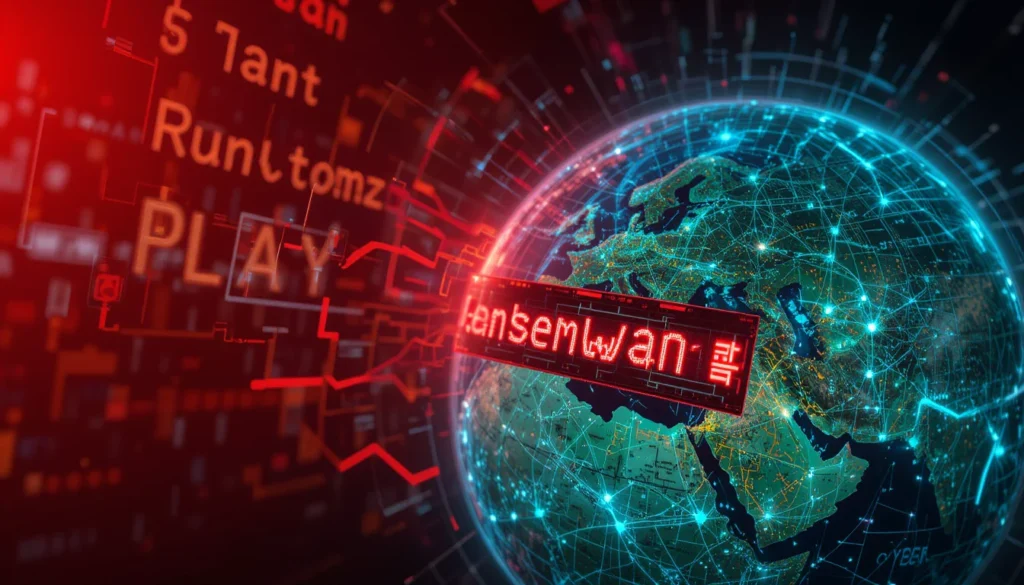Overview
In a significant development, the FBI has identified the Play ransomware—previously thought to be a financially motivated cybercrime tool—as a severe national security threat directly tied to North Korea. This revelation marks a dramatic escalation in the global cyber threat landscape, with Play ransomware now considered a weapon of cyberwarfare rather than mere extortion.
Key Facts
- The FBI has confirmed North Korea’s involvement in Play ransomware attacks.
- Victims include U.S. healthcare, education, and government entities.
- The ransomware is used not just for financial gain but also for espionage and sabotage.
- North Korea allegedly launders ransom payments through complex crypto channels.
- Play ransomware encrypts data and leaks sensitive files if ransom is unpaid.
- The group employs advanced tactics like “double extortion” and zero-day exploits.
- The malware is spread via phishing emails, RDP brute force, and third-party vendor compromise.
What’s Verified and What’s Still Unclear
✅ Confirmed
- FBI forensic reports link command-and-control (C2) servers and encryption signatures to North Korean threat actors.
- Cryptocurrency addresses traced to Pyongyang-linked laundering operations.
- Victimology overlaps with sectors typically targeted by North Korean APT groups.
❓ Still Unclear
- Whether the Play ransomware group is a dedicated APT cell or collaborating with criminal syndicates.
- How much autonomy this ransomware group has within the DPRK cyber hierarchy.
- The full list of compromised organizations remains undisclosed.
Timeline of Events
- March 2024: Surge in Play ransomware attacks noted globally.
- May 2024: FBI and CISA jointly issue advisory on Play tactics.
- June 10, 2025: FBI publicly attributes Play ransomware to North Korean state-backed actors.
- June 20, 2025: U.S. sanctions crypto wallets and infrastructure linked to the group.
Who’s Behind It?
The FBI has attributed Play ransomware operations to a North Korean state-backed advanced persistent threat (APT), likely affiliated with the Lazarus Group or a newer entity known as Labyrinth Chollima. These actors are known for state-sponsored cyber sabotage, espionage, and crypto theft. By masquerading as typical ransomware gangs, they blur the lines between crime and cyberwarfare.
Public & Industry Response
Cybersecurity experts and global governments have reacted swiftly:
- Microsoft and CrowdStrike released detection rules and indicators of compromise (IOCs).
- CISA updated its ransomware best practices and playbooks.
- The Biden Administration vowed enhanced sanctions and international cooperation to combat state-backed ransomware.
- Multiple European agencies are now investigating local breaches with the FBI’s cooperation.
Industry leaders warn that this shift from profit-driven ransomware to state-sponsored attacks demands a paradigm shift in how businesses approach cybersecurity.
What Makes This Attack Unique?
Play ransomware represents a hybrid threat. It combines the stealth and long-term planning of nation-state cyberespionage with the immediate disruption of criminal ransomware. Key unique aspects:
- Espionage Objective: Exfiltrated data often includes military, research, and diplomatic intel.
- Infrastructure Resilience: The malware uses rotating C2 infrastructure and polymorphic code to evade detection.
- Lack of Monetary Motive: Several victims reported data destruction even after paying the ransom, indicating non-financial intent.
- Global Targeting: Unlike many ransomware groups that focus on Western enterprises, Play has targeted Asia-Pacific, Middle East, and African governments.
Understanding the Basics
What is Play Ransomware?
Play ransomware is malicious software that encrypts an organization’s data and demands payment (usually in cryptocurrency) for decryption. It uses “double extortion” tactics: first encrypting data, then leaking it online if payment is refused.
Key technical methods include:
- Exploiting unpatched systems via zero-day vulnerabilities.
- Gaining access through weak RDP (Remote Desktop Protocol) configurations.
- Leveraging phishing emails with malware-laced attachments.
What Happens Next?
Here’s what experts predict:
- Sanctions Expansion: Additional individuals and crypto exchanges linked to North Korea will likely face sanctions.
- Cross-Nation Cyber Defense: NATO and allied cyber commands may increase intelligence sharing.
- Legal Actions: U.S. may issue criminal indictments or extradition requests for affiliated operators.
- Corporate Impact: Businesses, especially in healthcare and education, will need to enhance ransomware resilience urgently.
Security professionals are advised to review and update their endpoint detection rules, apply the latest patches, and train staff in phishing awareness.
Summary
The FBI’s classification of Play ransomware as a severe threat tied to North Korea marks a chilling evolution in cybercrime—one where nation-states mask their sabotage as criminal extortion. As cyberwarfare tactics evolve, so must our defenses. The global community now faces the difficult challenge of addressing ransomware not just as a security issue, but as a matter of national defense.
